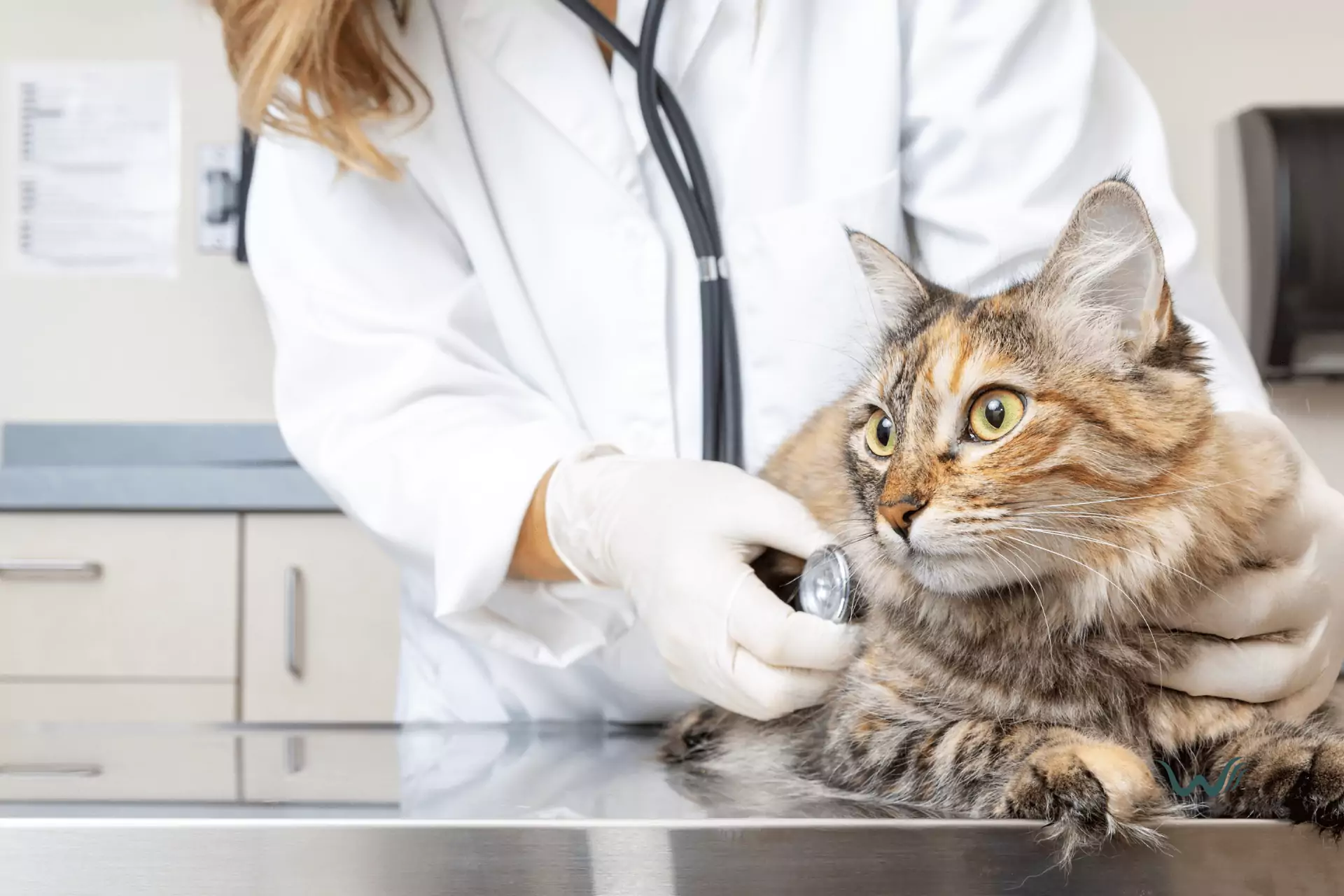

How Can I Get Rid Of Lice On Cats?
by Haley Mills
Last updated: January 30, 2024
Verified and Approved by:
Angela Morris,
MSW, LCSW
Fact Checked

Are you concerned about your cat’s health and well-being? If you have noticed your feline friend scratching excessively or exhibiting signs of discomfort, they may have lice. Dealing with a lice infestation in cats can be distressing, but there are steps you can take to get rid of these pesky parasites effectively. In this article, we will explore the symptoms of lice infestation in cats, the importance of consulting a veterinarian, and the various treatment options available to help eliminate lice from your furry companion’s coat.
When it comes to lice infestation in cats, early detection is key. It is crucial to be able to identify the symptoms, which may include excessive scratching, hair loss, and visible lice or nits (eggs) on your cat’s fur. If you suspect that your cat has lice, it is crucial to consult a veterinarian for a proper diagnosis and treatment plan. They will be able to confirm whether or not your cat has lice and recommend the most suitable treatment option based on the severity of the infestation. Remember, self-diagnosis and treatment may not be effective, so it is best to seek professional advice to ensure the well-being of your furry friend.
Identifying the Symptoms of Lice Infestation in Cats
If you suspect your cat has lice, try to identify the symptoms to ensure prompt treatment. Lice infestation in cats can cause a range of symptoms, including excessive scratching and grooming. You may notice your cat constantly scratching or biting at some regions of their body, particularly around the neck, ears, and tail. This is because lice feed on the blood of cats and their bites can cause intense itching and irritation.
Another common symptom of lice infestation is the presence of small, white eggs, known as nits, attached to the base of your cat’s fur. These eggs are about the size of a pinhead and can be easily seen with the naked eye. Additionally, you may notice tiny, sesame seed-sized insects crawling on your cat’s fur. These are adult lice and can be gray or tan in color.
If you observe any of these symptoms, take immediate action to treat your cat for lice. Ignoring the problem can lead to further discomfort for your cat and the potential for the infestation to spread to other pets or humans in your household.
Consulting a Veterinarian for Proper Diagnosis and Treatment
Seeking the advice of a veterinarian is crucial in order to diagnose and treat lice infestation in your feline companion accurately. Lice infestations can often be mistaken for other skin conditions, such as allergies or dermatitis, so have a professional evaluate your cat’s symptoms. A veterinarian will be able to thoroughly examine your cat’s fur and skin, looking for signs of lice, such as the presence of eggs or adult lice, as well as any skin irritation or inflammation. They may also take a sample of your cat’s fur or skin to examine under a microscope for a definitive diagnosis.
Once a lice infestation has been confirmed, your veterinarian will be able to recommend the most appropriate treatment for your cat. They may prescribe a topical or oral medication specifically designed to kill lice and their eggs. Be sure to follow your veterinarian’s instructions carefully and complete the full course of treatment to ensure that all lice are eliminated. Additionally, your veterinarian may recommend treating your cat’s environment to prevent re-infestation. This may involve thoroughly cleaning and vacuuming your home, washing bedding and other fabric items, and treating any other pets in the household. Consulting a veterinarian ensures that your cat receives the proper diagnosis and treatment for lice infestation, leading to a speedy recovery and a happy, healthy feline friend.
Using Specialized Lice Treatment Products for Cats
You’ll want to consider using specialized lice treatment products to treat lice on cats effectively. These products are specifically formulated to target and eliminate lice infestations in cats. Various options are available, including shampoos, sprays, and spot-on treatments. It is important to carefully read and follow the instructions provided with the product to ensure safe and effective use.
When using a lice treatment product, it is essential to thoroughly cover the cat’s entire body, paying close attention to areas where lice are commonly found, such as around the ears, neck, and base of the tail. Massaging the product into the cat’s fur will help ensure it reaches the lice and their eggs. It is also essential to treat any bedding, furniture, or other areas where the cat spends time to prevent reinfestation. Regularly vacuuming and washing these items can help eliminate any lice or eggs that may be present.
In addition to using specialized lice treatment products, it is important to regularly groom your cat to help prevent and detect lice infestations. Regularly brushing your cat’s fur can help remove any lice or eggs that may be present and help keep the fur clean and healthy. Suppose you notice any signs of lice, such as excessive scratching or visible insects on your cat’s fur. In that case, it is important to take immediate action to treat the infestation and prevent it from spreading to other pets or humans in your home.
Thoroughly Cleaning and Disinfecting Your Cat’s Environment
Thoroughly cleaning and disinfecting your cat’s environment is essential in eliminating lice. Lice can easily spread from one cat to another through shared bedding, toys, and other items. To prevent reinfestation, remove any potential sources of lice and their eggs.
Start by washing all bedding, blankets, and toys in hot water with a detergent. This will help kill any lice or eggs that may be present. Be sure to dry these items thoroughly in a hot dryer as well. Vacuuming the entire house, including carpets, furniture, and curtains, is crucial in removing stray lice or eggs that may have fallen off your cat.
In addition to cleaning, disinfect your cat’s environment. Use a pet-safe disinfectant to clean all surfaces, including floors, countertops, and furniture. Pay special attention to areas where your cat spends a lot of time, such as their bedding or favorite resting spots. Regularly disinfecting these areas will help prevent lice from reinfesting your cat.
Remember, lice can survive for a short period of time without a host, so it’s a good idea to continue cleaning and disinfecting your cat’s environment even after the lice have been eliminated. You can create a lice-free space for your feline friend by thoroughly cleaning and disinfecting your cat’s environment.
Can the Same Treatment for Lice on Cats Work for Dogs as Well?
Yes, the same treatment for lice on cats can work for dogs as well. When it comes to getting rid of dog lice, using a specialized lice treatment or shampoo specifically formulated for pets can effectively eradicate the problem. Just make sure to follow the instructions carefully to keep your dog comfortable and lice-free.
Can the same treatment for pink eye in dogs be used to get rid of lice on cats?
When it comes to treating pink eye in dogs, it’s important to note that the same treatment cannot be used to get rid of lice on cats. While pink eye in dogs and lice on cats both require specific treatment, it’s crucial to consult a veterinarian for the appropriate care for each condition.
Preventing Future Lice Infestations in Cats
Preventing future lice infestations in cats involves regularly grooming them and keeping their living environment clean. Regular grooming includes combing your cat’s fur with a fine-toothed comb to check for any signs of lice or nits. If you do find lice or nits, it’s essential to treat the infestation immediately to prevent it from spreading. In addition to grooming, you should also bathe your cat regularly using a cat-friendly shampoo. This will help to remove any lice or eggs that may be present on their fur.
Keeping your cat’s living environment clean is also crucial in preventing future lice infestations. Vacuuming your home regularly, especially in areas where your cat spends a lot of time, can help to remove any lice or eggs that may have fallen off your cat. It’s also important to wash your cat’s bedding and any other items they come into contact with, such as blankets or toys, in hot water to kill any lice or eggs.
By regularly grooming your cat and keeping their living environment clean, you can significantly reduce the risk of future lice infestations. It’s important to be vigilant and proactive in preventing lice infestations, as they can be uncomfortable and irritating for your cat. If you have any concerns or suspect your cat may have lice, it’s best to consult a veterinarian for proper diagnosis and treatment.
Frequently Asked Questions
Are lice infestations in cats contagious to other pets or humans?
Yes, lice infestations in cats are contagious to other pets and humans. Be sure to immediately prevent the spread by treating the affected cat and other household animals.
Can I use over-the-counter lice treatment products meant for humans on my cat?
You should not use over-the-counter lice treatment products meant for humans on your cat. Cats have different physiology and can be sensitive to certain chemicals found in human products. Consult a veterinarian for safe and effective treatment options.
How long does it take for cats to clear up lice infestations with treatment?
It typically takes a few weeks for lice infestations in cats to clear up with treatment. It’s essential to follow the instructions provided by your veterinarian and continue treatment until all lice are gone.
Can lice infestations in cats cause any long-term health issues?
Lice infestations in cats can cause discomfort and irritation, but they typically do not cause any long-term health issues. The infestation should clear up with proper treatment, and the cat should return to normal health.
Are there any natural or home remedies that can effectively treat lice infestations in cats?
Yes, there are natural remedies and home remedies that can effectively treat lice infestations in cats. Some options include using essential oils, such as tea tree oil or lavender oil, or a vinegar solution to kill the lice.
Certify Your Emotional Support Animal Today

Why You Can Rely on Us?
At Wellness Wag, we believe your pet deserves care rooted in both science and compassion. Each article is carefully researched, written in clear language for pet owners, and then reviewed by qualified professionals to ensure the information is evidence-based, current, and practical for real-life care. Our goal is to help you feel confident in making informed decisions about your pet’s health and well-being.
Reviewed by
Angela Morris, MSW, LCSW
Angela is a licensed clinical social worker with 20 years of experience in patient advocacy and community mental health. She has assisted numerous clients with ESA evaluations and brings a deep understanding of disability accommodations, ensuring that all information is accurate, supportive, and practical.

Written by :
Haley Mills
Last Updated :
January 30, 2024











